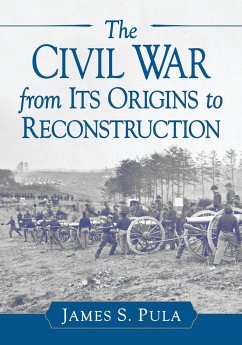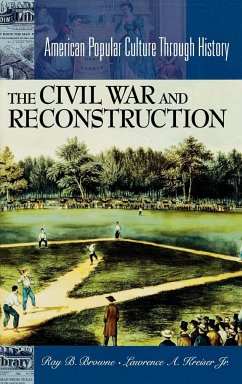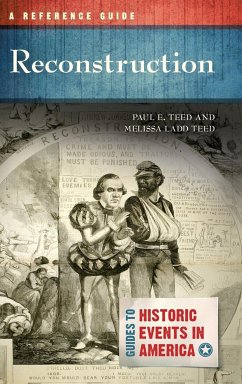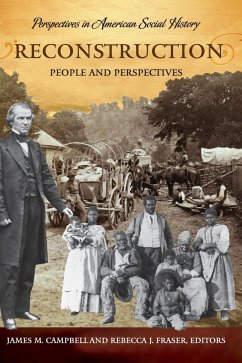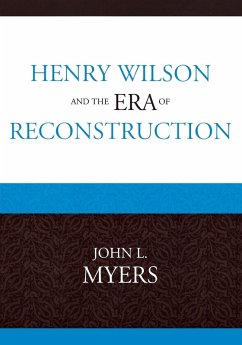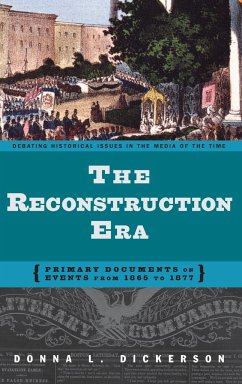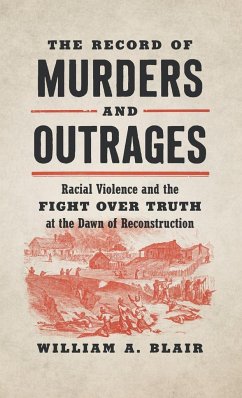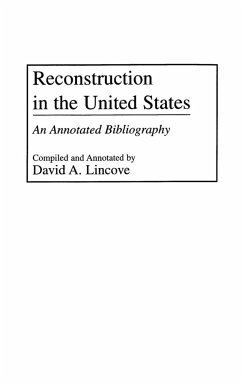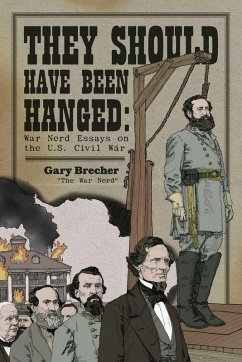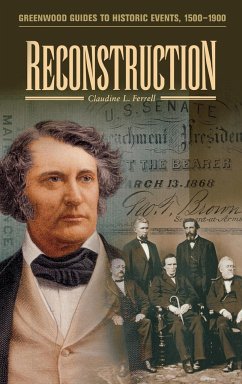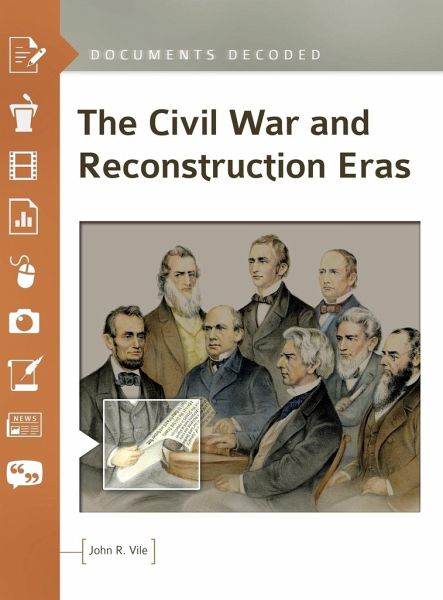
The Civil War and Reconstruction Eras
Documents Decoded
Versandkostenfrei!
Versandfertig in 1-2 Wochen
90,99 €
inkl. MwSt.

PAYBACK Punkte
45 °P sammeln!
The carefully selected and edited readings in this book are chronologically arranged so that students can trace the progression of events and understand the thoughts of those living during the critical Civil War and Reconstruction periods. Both the Civil War and Reconstruction were pivotal moments in American history that have shaped race relations, perceptions of national power, and the relations between the national government and the states. Powerful political figures, who were often guided by lofty motives, found themselves caught up in circumstances that were largely beyond their direct c...
The carefully selected and edited readings in this book are chronologically arranged so that students can trace the progression of events and understand the thoughts of those living during the critical Civil War and Reconstruction periods. Both the Civil War and Reconstruction were pivotal moments in American history that have shaped race relations, perceptions of national power, and the relations between the national government and the states. Powerful political figures, who were often guided by lofty motives, found themselves caught up in circumstances that were largely beyond their direct control. Issues often proved far more complex than anticipated, and many initial "solutions" that were set in motion more than 130 years ago continue to affect current U.S. politics. This book provides American history students and teachers with a handy reference that examines all important aspects of the Civil War and Reconstruction eras. The author models how an expert scholar interacts with primary sources, thereby providing guidance that shows readers how to pick apart and critically evaluate firsthand the key documents chronicling these major events in American history. The deftly edited readings in this book are presented in chronological order so that students can trace the progression of events and thinking of various individuals during the critical Civil War and Reconstruction periods. Annotations explain key terms and highlight key portions of laws, presidential speeches and orders, Supreme Court decisions, and other sources from the period.





